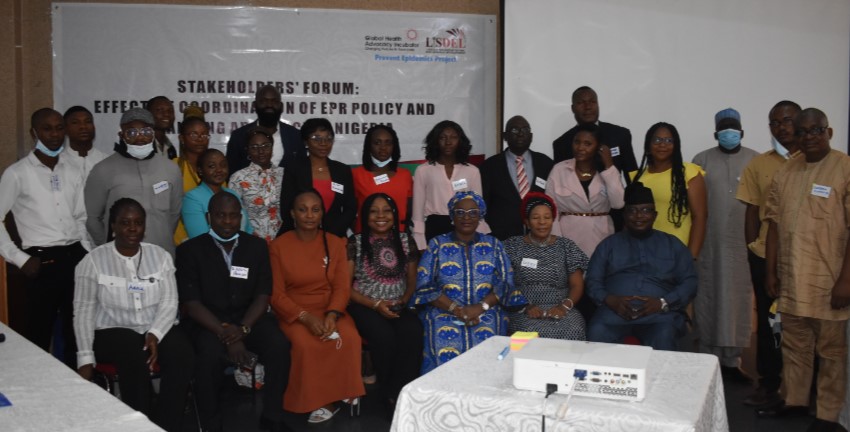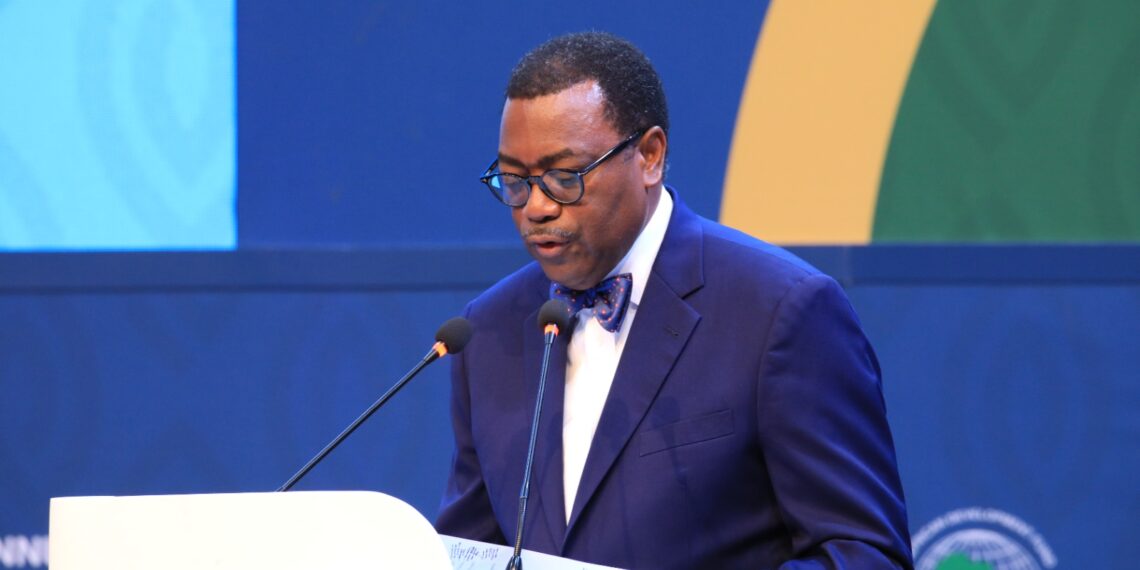
Repositioning the advocacy landscape for NAPHS implementation in Nigeria
- Health Security
- No Comment
- 478

Background
Nigeria has made significant progress to prevent, detect and respond to disease outbreaks in the country through the National Centre for Disease and Control (NCDC). However, despite these remarkable achievements, there are still perceived gaps in the public health infrastructure of the country. One of these is the sub-optimal funding of the health sector system to adequately achieve epidemic preparedness and response (EPR) objectives in line with the International Health Regulation (IHR).
The consequence of this is clearly seen in the case of the recent COVID-19 outbreak which has further exposed the vulnerability of the country’s health system to attain resilience, highlighting the need for sustainable funding and investment in the health system for health security in the country.
In an attempt to achieve this, the Prevent Epidemic (PE) Project being implemented by the Legislative Initiative for Sustainable Development (LISDEL) with funding from the Global Health Advocacy Incubator (GHAI) conducted a forum on effective coordination of EPR policy and advocacy in Nigeria.
Implementation
The forum, with theme, “Repositioning the Advocacy Landscape for National Action Plan for Health Security (NAPHS) implementation” brought together multi-sectoral key stakeholders in the civil society organization space and the media to foster discourse towards improved coordination of EPR policy and advocacy in the country.
The meeting featured presentations, panel discussion and plenary sessions which were delivered to achieve more effective coordination of existing and prospective CSO champions, the media and private sector organizations for epidemic preparedness and response financing; deepen the knowledge of the civil society on the NAPHS; and articulate civil society actions for advancing the NAPHS objectives.
Key Highlights and Outcomes
An overview of the National Action Plan on Health Security in Nigeria (NAPHS 2018-2022) revealed that, a total of N134 billion is required to implement the Plan for the period of 5 years. The NCDC which is the chief implementing agency of the NAPHS as well as the other implementing MDAs across the NAPHS technical areas are underfunded to implement the NAPHS.
In the 2018 disbursement of the Basic Health Care Provision Fund (BHCPF), Nigeria Centre for Disease and Control (NCDC) received N361 million which was used in setting up and strengthening emergency outbreak response, national incident coordination center, state public health emergency operations centers, reference laboratories and digitalization of surveillance and outbreak response across the country.
A lot still needs to be done for further expansion and strengthening of the laboratory system and equipping each state with rapid response teams in case of health emergencies. These and many more require substantial as well as continuous and increased public investments in health security.
Stakeholders at the forum were exposed to various avenues where funds can be mobilized for health security and the health sector in general. For instance, the Stimulus package from the International Monetary Fund (IMF) provided to Nigeria for COVID-19 response in 2020 and the unutilized BHCPF funds at the state levels. This can be achieved through right capacity coordination to advocate and engage relevant MDAs as well as stakeholders involved.
The media participants were equally enjoined to support advocacy for increased budgetary allocation for EPR; ensure effective reportage and dissemination of information around epidemic preparedness and response even when there is no public health emergency of concern.
Key Recommendations/Next Steps
The forum recommended a sustained public-private partnership avenue to garner resources for health security in the country, maintain coalition of CSOs as a strong indivisible entity towards actualizing the objectives of EPR and the health sector in general, take advantage of the ongoing bilateral negotiations to further articulate priorities for epidemic preparedness and response funding in the country through the Federal Ministry of Health among others.
Implications
Some key implications of the forum to Nigeria’s EPR space and the health sector in general include adequate implementation of the NAPHS which in turn will improve Nigeria’s epidemic preparedness score as provided by the IHR. This activity will also accelerate achievement of resilience in the health system and protect the huge investment and efforts towards achieving UHC.
Contributed by Akoso Philip (LISDEL)
Reviewed by Juliana Aribo-Abude (LISDEL)





